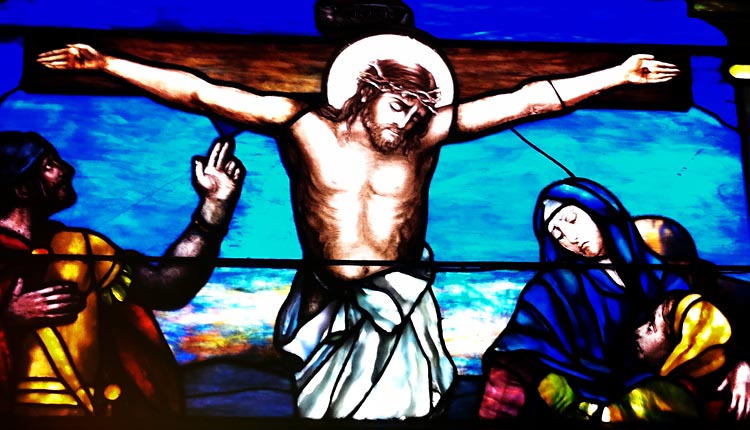by Worth Green, Th.M., D. Min.
We are talking about growing spiritually. We have a goal. In Ephesians 4 the apostle writes that we are to grow until we attain to “mature personhood,” until we reach, “the measure of the stature of the fullness of Christ.”
Now, as Christians, we believe that growing spiritually means paying attention to what is important to Jesus. Last week we saw how a scribe came to Jesus and, asked, “Which Commandment is first of all?” And Jesus answered:
29 The first commandment is this…. ‘Hear O Israel: The Lord our God, the Lord is one, 30 and you shall love the Lord your God with all your heart, and with all your soul, and with all your mind, and with all your strength.’ 31 The second is this, ‘You shall love your neighbor as your love yourself.’ There is no other commandment greater than these.
If these commandments are the greatest, it follows that these commandments are the first commandments we ought to keep.
What have we learned so far?
In Week 1 we saw that the heart stands for the whole person. It is the seat of the mind, emotions, and will, and it serves to keep all three in balance.
Last week we talked about the soul. We saw that like the heart it could stand for the whole person. It is the life force. The soul is also the center of the emotions. We saw how the soul can love, and hate. It can be happy or sad. We saw how the soul of was drawn in love to a young woman, and how the soul of the Psalmist longed for God. In the New Testament, we saw that in the Garden of Gethsemane Jesus plead with his disciples to be watchful, and then confessed to them, “My soul is sorrowful, even to death.”
Last week we saw that the soul is the center of the emotions. Today, I want to point out that the mind is the center of thought.
I then want to say immediately, “Different strokes for different folks.” Some people are attracted and ruled by things that appeal to the the soul and some by things that appeal to the mind.
People who prefer to spend time cultivating the soul are drawn to the touching. We describe the touching as “warmth.” In his Journal for Wednesday, May 24th 1738. John Wesley wrote about his visit to a meeting of the Moravian Fetter Lane Society in Aldersgate Street in London. A brother was reading the preface to Luther’s commentary on Romans aloud when Wesley felt that he did trust Christ and Christ alone for his salvation. He wrote, “My heart was strangely warmed.” It seems like a small thing in the life of one person, but it changed the world. Many historians date the Methodist Revival, which they think saved England from a revolution like that which took place in France from that evening. Or what about this? In Luke 24 on Sunday afternoon two disciples meet the Risen Jesus on the Road to Emmaus. At first they did not recognize him. They tell him what had happened on Friday, about the crucifixion, and about how they had hoped Jesus would be the one to deliver Israel, and about the reports of his resurrection. And then Jesus begins to upbraid them and to teach them everything the scriptures of the Hebrew Bible had to say about the Christ. Then, at the end of the day, as they sat at table, Jesus took the bread and broke it, and “he was known to them in the breaking of the bread.” When the Risen Christ had disappeared they said to each other, “Did not our hearts burn within us while he talked to us on the road, while he opened to us the scriptures?” At minister’s conference one of our pastors told his story. His family very poor. He was 9 or 10 years old. His father had died leaving his mother to care for six children. He was the oldest. One night his Mother was crying as served humble dinner. He asked why, “She said, it is the last of our food.” The next day he walked out the dirt road from his house that led to the highway. As he did he prayed over and over again that God would give him some way to feed the family. “God help me help my mama,” he prayed over and over again. As he approached the highway he saw a car pass. It stopped and came back, and waited for him at the end of his road. The man in the car identified himself as a Methodist minister. He handed the boy a five-dollar bill—and he said, “The Lord told me to bless somebody with this money today, and I thought it must be you.” Another person attending the conference said, “You can build a faith on that story.” Many have built their faith on similar stories.
People who prefer to spend time cultivating the mind are drawn to the convincing. We describe the convincing as “light.” In 2nd Corinthians 4:6 St. Paul writes:
“For it is the God who said, “Let light shine out of darkness,” who has shone in our hearts to give the light of the knowledge of the glory of God in the face of Christ.”
In the 4th Gospel Jesus says, “I am the light of the world; he who follows me will not walk in darkness, but will have the light of life.” (John 8:12) Light is a major theme in the Gospel of John. The word is used 23 times. In John chapter 1 the apostle sets the stage for the whole gospel when he writes of Jesus, whom he considers the Eternal Word of God robed in human flesh saying:
1:4 In him was life, and the life was the light of men. 5 The light shines in the darkness, and the darkness has not overcome it.
So, how do we love God with all the mind? I believe we must look to the light. We need more light. Without doubt we will get more light as we study the life of Jesus.
The earliest life of Jesus to which we have access to is not found in the gospels. Remember the gospels were not written down at first because the early church thought that Jesus was coming back next Tuesday. The gospels were written down only after the first generation of witnesses started to die out. We know that from John 21. The earliest life of Jesus is tucked away in the epistles of Paul. Paul reproduces a great deal of what Jesus taught, sometimes giving Jesus the credit, sometimes merely echoing him. Paul also gives us an outline of the Master’s life. We read that Jesus had twelve disciples. We learn how, on the very night that he was betrayed, he instituted the Lord’s Supper. We read about how Jesus “ died for our sins in accordance with the scriptures.” We read how, Jesus was buried, and that on the third day, he was raised, and that he appeared. And Paul gives a long list of witnesses to the Risen Jesus, beginning with Peter, and ending with himself. And we read that the Risen Christ is going to appear again someday, and that when he does, he will be visible to all, to doubt and unbelief as well as to belief. And when Jesus Christ does appear in Glory those who have trusted him and followed him and going to appear with him in Glory! And we who have believed in him will participate in his Resurrection, and we will inherit his Eternal Life. Paul gives us the basics, a good outline of the life and mission of Jesus Christ.
Yet there is more. When Christ did not come back right away, people wanted to know more about what Jesus did and taught in his lifetime. The witnesses gave them four gospels, one to sure to appeal to every type of person. By the by, did you know that modern psychologists beginning with Carl Jung have identified just four basic personality types. I do not think the fact that we have four gospels a mere coincidence! Each appeals to a basic type. Let’s look at them.
Mark is the oldest, and shortest of the gospels, and it is thick with action. Mark’s gospel appears to people who want to do things right now. It has always been my personal favorite. In Mark Jesus does everything “immediately.” And Mark does not try to explain everything, for he is writing to those who know about Jesus and he is confident that his readers can fill in what he leaves out.
Matthew is the gospel for the traditionalist. Matthew relates all that Jesus said and did to something that takes place in the Old Testament. In the book of Exodus Moses goes up the Mountain and meets with God and the brings down the Law. In Matthew Jesus goes up the Mountain and then sits down, and begins to teach. In the course of his sermon he raises much of what Moses said to a higher power. He sums up his teaching when he says to his disciples, “Unless righteousness exceeds that of the Scribes and Pharisees, you will never enter the kingdom of heaven.” (Matthew 5:20)
Now let me speak to those of you who are dominated by the mind. Some people have difficult relating the God of the New Testament to the God of the Old Testament. If you fall in that category, it may be helpful to see that God revealed only as much of himself as people were ready to receive. Abraham got a little. Moses got more. Isaiah got more still, and some of the prophets were allowed to understand they were serving not themselves, or their generation, but the generations of those who would believe in Jesus Christ! (See 1st Peter 1:12). John the Baptist got more of the Revelation than any of the other prophets, and Jesus himself said that John the Baptist was the greatest of the prophets. Why was John the greatest? He was the greatest because he stood closest to Jesus. John looked at Jesus and said, “Behold the lamb of God who takes away the sins of the world.” (John 1:29) “He must increase, I must decrease.” (John 3:30)
God’s final revelation of God’s Self is Jesus Christ. That does not mean that God has nothing else to say to us today. It does mean that from the time of Jesus unto all eternity—which is without end, all further revelations of God will be Christ like.
Personally, I deal with the difficult texts of the Old Testament by remembering that there are some things in Scripture that are Pre-Christ, and some things in scripture that are Sub-Christ. If you do not believe that, just read the Sermon on the Mount. Over and over Jesus says, “You have heard that it was said…but I say unto you.” “Let me give just one example. Jesus said:
You have heard that it was said, ‘You shall love your neighbor and hate your enemy.’ (Inferred from scriptures like 2nd Sam. 19:6; Psa. 26:5; Psa. 139:21, Ecc. 3:8) 44 But I say to you, Love your enemies and pray for those who persecute you, 45 so that you may be sons of your Father who is in heaven; for he makes his sun rise on the evil and on the good, and sends rain on the just and on the unjust.
Jesus raises our understanding of God to a higher power. It must never go lower!
That brings us to Luke. Luke has been called “the most beautiful book ever written.” Look to Luke for the story of the first Christmas, and for the story of the Good Samaritan, and for the story of the Prodigal Son. The Story of the Prodigal Son is my favorite parable. I love that part which depicts the prodigal at the end of his rope. He has wasted his inheritance in riotous living. He now has a job caring for the pigs of a Gentile, and he finds himself lusting over the slop he is feeding the pigs, and remembering a better time, in his father’s house. And the text declares, “When he came to himself, he said, ‘I will arise, and I will go to my father, and I will say, ‘Father, I have sinned against heaven and against you…’” “When he came to himself!” “When the best that was in him reared his head.”
You want to grow spiritually. Who are you? Are you the person you are when you are at your worst? Or, are you the person you are when you are at your best? The story of the Prodigal Son reminds us that it is the best in us that God wants us to remember. In once sense, growing spiritually means simply becoming the person that God saw in us in the beginning. God wants us to be “as beautiful as we were in the mind of God when God first thought of us.”
And now we are slam up on John. John is the gospel this is filled with advanced theology and images. Tradition says that John was very young when he followed Jesus and that he lived to a ripe old age and wrote his gospel—perhaps through a close disciple, in the last decade of the 1st Christian Century. John had had a lifetime to reflect on Jesus. John had a Ph.D. in Jesus; yet, in some ways, John’s Gospel is the simplest gospel and the easiest to read. I know several respected New Testament scholars who believe that John’s gospel was written down in pure, uncomplicated Greek so that children could read it. I believe that. It ought not to surprise us that the smartest people keep things simple.
The late Mervin Weidner, at one time the pastor of Central Moravian Church in Bethlehem, Pennsylvania, encouraged me to keep it simple, and he told me a story of what happened to him early in his ministry at Bethlehem. He was trying to impress, and he was pulling out all the stops. He was giving sermons worthy of a seminary classroom. Then a well known professor who was a member of the congregation came to him with a request, “Pastor,” he said, “please put the fodder down where the sheep can feed!”
I recall an article I read thirty years ago in “The Nazarene Preacher Magazine,” which compared the preaching of Robert Schuler, of the Crystal Cathedral, and Rex Humbard, of the Cathedral of Tomorrow. Rex Humbard had an 11th grade education, and he spoke at an 11th grade level. Robert Schuler had a PH.D., and he spoke at a 6th grade level. John had a PH.D. in Jesus. That is why his gospel is so simple and sublime. How can you beat a verse like John 3:16? It is the sum total of the gospel, and all that really matters:
For God so loved the world that he gave his only begotten Son, that whoever believes in him might not perish, but have eternal life.
I have a shelf of books by Karl Barth in my study. Barth lived to complete his “Dogmatics.” Perhaps you remember the off-told story of the reporter who asked the most sublime thing he knew? Barth must have been thinking of John 3:16 when he replied, “Jesus loves me this I know, for the Bible tells me so.”
There is a simplicity on the far side of complexity and the person who seeks to love God with all the mind will seek it. She will not avoid the complexity. She will face every issue, and she will try to grow through the issues, and get to the simplicity that is beyond the complexity. As Justice Holmes once said, “For that simplicity that lies on the near side of complexity, I would not give a fig; for that simplicity that lies on the far side of complexity, I would give my everything.”
Of course, Jesus is not confined the epistles of Paul, nor the gospels, nor the New Testament itself. There are passages in the Hebrew Bible, our Old Testament, that Christians have always insisted are about Jesus. One example is the story recorded in Genesis 14. Following his victory, Abraham pays tithes to Melchizedek, the King of Salem and the priest of God Most High. Melchizedek then brings out bread and wine. Small wonder that the writer of the Hebrews says that Jesus was a high priest forever “after the order of Melchizedek. Or what about Isaiah’s vision of the suffering servant?
Is. 53:4 Surely he has borne our griefs and carried our sorrows; yet we esteemed him stricken, smitten by God, and afflicted. 5 But he was wounded for our transgressions, he was bruised for our iniquities; upon him was the chastisement that made us whole, and with his stripes we are healed. 6 All we like sheep have gone astray; we have turned every one to his own way; and the LORD has laid on him the iniquity of us all.
Of course, confining Jesus to the pages of the whole Bible will not work. As the writer to the Hebrews says:
2 For the word of God is living and active, sharper than any two-edged sword, piercing to the division of soul and spirit, of joints and marrow, and discerning the thoughts and intentions of the heart. 13 And before him no creature is hidden, but all are open and laid bare to the eyes of him with whom we have to do.
Did you get it? “Before him no creature is hidden!” Here the Eternal Word of God is ultimately not a book but a person, a living person who is active in us, and through us, and for us. We often learn of Christ as he speaks to us deep in our hearts, or as we see him living in the lives of others. As my mother is fond of saying, “The only Christ the world will see is the Christ it sees in you and me.” Christians have the virtue of seeing Christ in one another, and in those persons of the world that call us to his service. As Jesus himself said, “In as much as you have done it to the least of these my brothers (and sisters) you have done it unto me.” Jesus includes he prisoner, the hungry, the thirsty, the naked, the stranger, the sick, the prisoner, among his brothers. (Matthew 25:31-46)
If we seek to grow the mind by seeking the light, we will find that we live in a world of light, not just everyone that we meet, but everything that we read reminds us of him who is the light of the world—whether science, or history, or theology, or biography, or politics. It all speaks of Him, and so it must, for he is “the Lord of all.”
Finis










